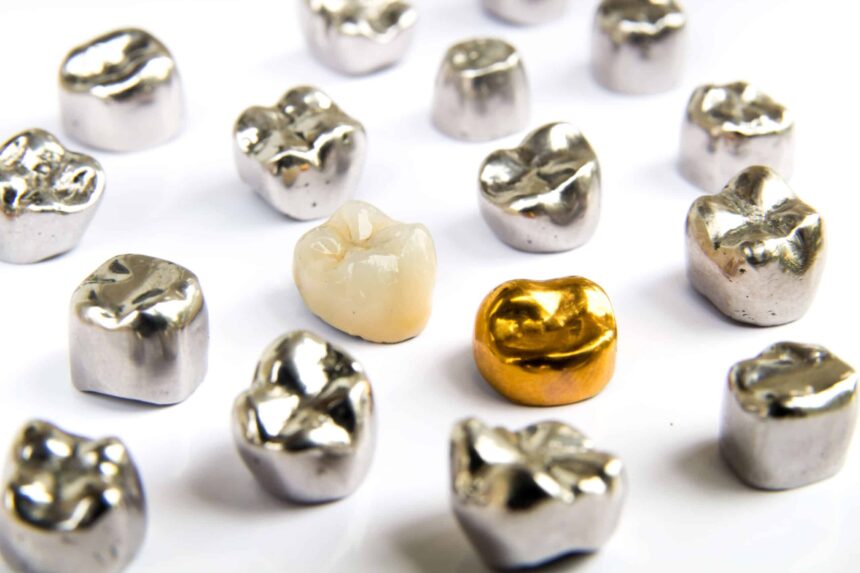Dental restorations are not one-size-fits-all; choosing the right option can significantly impact both function and appearance. Dental crowns are used to protect damaged teeth and enhance aesthetics, but they are available in a variety of materials and styles. Each type offers unique benefits depending on durability and cosmetic preference. Here’s more information on the different types of dental crowns:
Dental Crowns Explained
A dental crown is a tooth-shaped cap that covers a damaged or weakened tooth completely. Think of it as a protective shield for your tooth, restoring its strength and function. Crowns restore the tooth’s size, shape, strength, and appearance while protecting it from further damage.
Dentists recommend crown restoration for several situations. A large cavity that cannot be fixed with regular fillings requires a dental crown to restore the tooth’s structure. Teeth that have undergone root canal treatment often require crowns. Severely worn-down teeth from grinding or chewing habits benefit from crown protection.
Porcelain and Ceramic Crowns
Porcelain and ceramic crowns provide a natural appearance. These crown restorations perfectly match the color and translucency of natural teeth. The material reflects light similarly to natural tooth enamel, creating a seamless blend with your smile.
These tooth restorations work best for front teeth, where appearance matters most. Porcelain crowns resist staining from coffee, tea, and other foods better than natural teeth do. The material is biocompatible but can be more fragile than other types and may chip under excessive force.
Ceramic tooth restorations offer similar aesthetic benefits but with slightly different properties. All-ceramic crowns contain no metal framework, eliminating the possibility of dark lines appearing at the gum line. This makes them particularly suitable for people with receding gums or thin gum tissue.
Metal and Porcelain-Fused-to-Metal (PFM) Crowns
Metal crowns provide exceptional strength and durability, making them ideal for back teeth that endure heavy chewing forces. These tooth restorations are made from various metal alloys, including gold, platinum, and base metal alloys like cobalt-chromium. The main advantage of a metal tooth crown lies in its longevity and resistance to wear. They rarely chip or break and can withstand the strongest bite forces.
Metal crowns also require minimal removal of healthy tooth structure during preparation. Their metallic color makes them unsuitable for visible areas of the mouth. Porcelain-fused-to-metal tooth crown combines the strength of metal with the appearance of porcelain. These tooth restorations have a metal framework covered with a porcelain layer that matches surrounding teeth. PFM crowns offer good durability and acceptable aesthetics for most situations.
All-Resin and Zirconia Crowns
All-resin crowns are made entirely of composite resin material, similar to tooth-colored fillings. Resin tooth restorations can be completed in a single dental visit in some cases, making them convenient for patients seeking immediate restoration. The main advantage of resin crowns is their ease of repair.
If a resin crown chips, it can often be repaired directly in the mouth without needing to be removed. A resin tooth crown wears down faster than other materials and is more prone to staining and fracture. They are most effective as temporary solutions.
Zirconia crowns are one of the newest and strongest crown materials available. Made from zirconium dioxide, these tooth restorations offer exceptional strength while maintaining good aesthetics. A zirconia tooth crown resists chipping and cracking better than porcelain tooth restorations while providing a natural appearance.
Book Your Dental Crowns Consultation Today
Choosing the right type of crown depends on various factors, including the tooth’s location, aesthetic preferences, and functional requirements. Each material offers distinct advantages and concerns that make it suitable for different situations. To determine which crown type best meets your specific needs, contact a dental practice near you to schedule a consultation.








